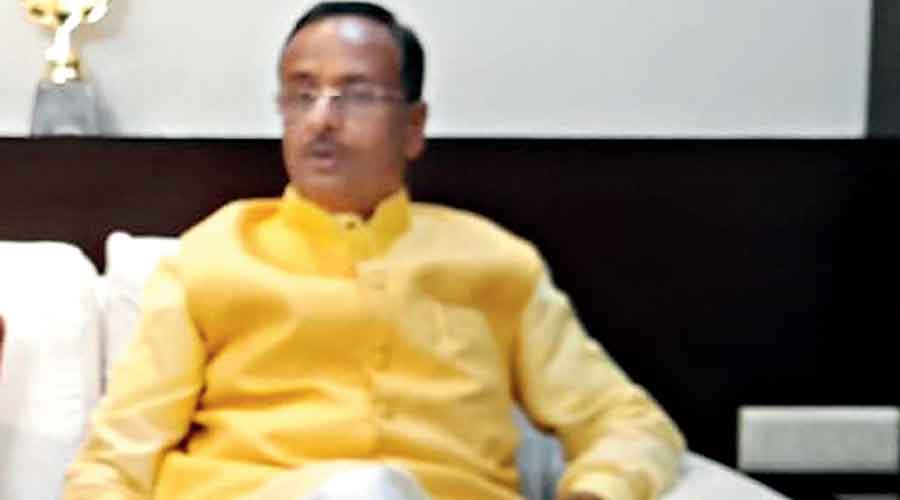Prime Minister Narendra Modi has promised a “new policy” to free farmers in Uttar Pradesh from the menace of “chhutta janwar” (stray cattle), realising that the hordes of animals devouring crops could gnaw at the BJP’s electoral prospects.
But the BJP-ruled state’s deputy chief minister, Dinesh Sharma, has held the cattle-rearing communities and farmers at large responsible for the stray animals.
“People keep the cows as long as they give milk and then abandon them when they become old. There should be a change in the attitude of the people.… People should be kind to gau mata,” Mishra told this correspondent earlier this week during an interview.
The Opposition Samajwadi Party and Congress have made stray cattle a major poll plank and are trying to corner the Yogi Adityanath government over it.
Sensing the anger among farmers and the effectiveness of the Opposition’s campaign, Modi told an election rally in Bahraich on February 22: “We are taking the problems faced by the farmers due to stray cattle very seriously. Maine iska upay khoj liya hai (I have already found a solution). We will roll out a policy to get rid of the stray cattle problem after the election results are announced on March 10 and a government under Yogi Adityanath’s leadership takes over.”
The Adityanath government’s law banning cow slaughter and declaring it as illegal has led to an explosion in the bovine population.
While the BJP prepares for Modi to camp in Varanasi, his Lok Sabha constituency, for three days from March 3 and spearhead the campaign of the party in eastern Uttar Pradesh in the last two crucial phases, deputy chief minister Mishra described him as the “most ideal Prime Minister”.
“Attired in ceremonial red, taking a dip in the Ganga, holding a pitcher of holy water in his hands, wearing sandalwood paste on his forehead and moving barefoot on the premises of the Kashi Vishwanath temple — these are the signs of the quintessential Prime Minister of Bharat Varsh,” Sharma said at his residence in the Aish Bagh area of Lucknow on Wednesday evening.
Sharma, who comes from the Rastriya Swayamsevak Sangh and was Lucknow mayor before taking over as deputy chief minister in 2017, appeared to be referring to Modi taking a dip in the Ganga and performing puja at the Kashi Vishwanath temple after laying the foundation of the Kashi-Vishwanath corridor in Varanasi last December.
Asked if it was appropriate for the Prime Minister to project himself as a symbol of a particular religion or faith, Sharma said: “It’s wholly appropriate.… What is inappropriate is to shy away from the identity of the Hindu rashtra. What is gravely inappropriate is that Congress and Samajwadi Party leaders have so far not visited Ayodhya and offered puja to Ram Lalla despite the Supreme Court permitting the construction of the Ram temple.”
Sharma, who also holds the education portfolio, said: “We are in the process of imparting education in Tamil, Malayalam, Telugu and many other regional languages in the schools and universities of Uttar Pradesh.”
Curiously, he described Malayalam, Tamil and other south Indian languages as “younger sisters of Hindi”.
“Hindi is our national language and it should be taught in every part of our country. But Tamil, Telugu and Malayalam are Hindi’s younger sisters. We should protect and nurse the younger sisters of Hindi,” the BJP politician said.
With four rounds of the seven-phase elections over, Sharma predicted a BJP victory “hands down”.
“We will win as many seats as we had won in the 2017 elections. The double engine governments under the Prime Minister and chief minister Yogi Adityanath have done wonders in the state, giving record employment to youths and building a robust health infrastructure. Uttar Pradesh has the fastest growing economy,” he said.










